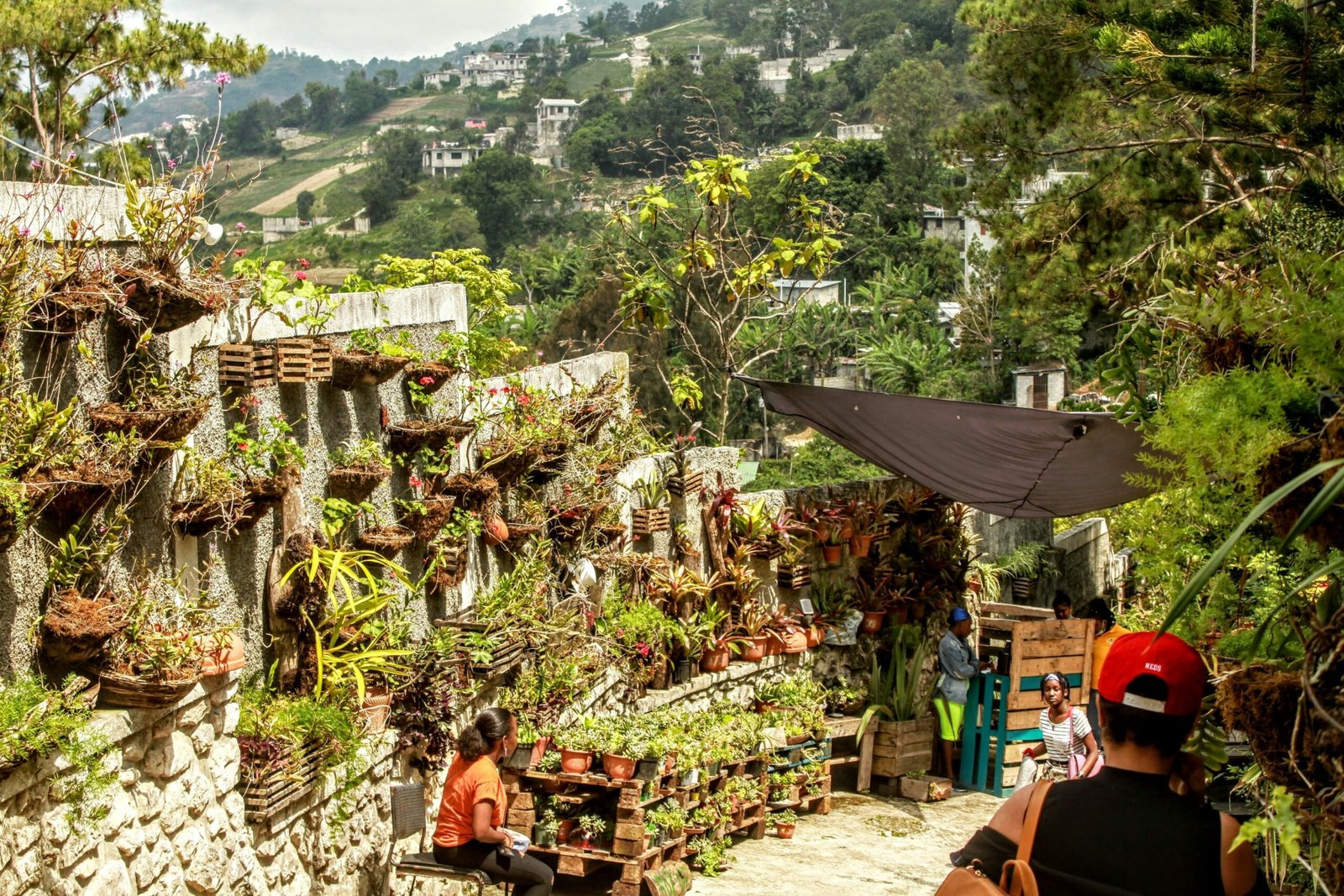Introduction to Domestic Tourism
Domestic tourism refers to the phenomenon where residents of a country travel within their own borders to explore various destinations, engage in leisure activities, or attend events. Unlike international travel, which involves crossing national boundaries, domestic tourism enables individuals to discover the wealth of cultural, historical, and natural resources available within their homeland. This type of tourism not only encourages local exploration but also supports the regional economy by creating jobs and sustaining local businesses.
The significance of domestic tourism in the travel industry has been underscored in recent years, particularly in the aftermath of the global pandemic. As international travel restrictions were imposed, many travelers shifted their focus to local destinations, leading to a surge in domestic travel. For many people, exploring their own country became an appealing and safer alternative. This shift has prompted governments and businesses to adapt their strategies to cater to this growing segment of the tourism market.
Trends in domestic tourism have evolved, showcasing a preference for road trips, nature-based experiences, and rural getaways. Travelers are increasingly seeking authentic experiences that connect them with local culture and communities. There has also been a noticeable increase in the popularity of staycations, where individuals indulge in nearby attractions rather than traveling far from home. This trend highlights a renewed appreciation for local heritage sites, parks, and recreational facilities.
In recent years, various initiatives have emerged to promote domestic tourism, including government campaigns aimed at encouraging residents to explore their own country. Online platforms and travel agencies have also evolved, providing tailored packages and information on lesser-known local attractions, thereby further enhancing the appeal of domestic tourism. The renewed enthusiasm for exploring local landscapes illustrates how domestic travel continues to play a vital role in revitalizing the travel industry and fostering a sustainable connection between individuals and the destinations they choose to visit.
Ease of Travel: The Simplicity of Domestic Tourism
Domestic tourism offers a unique set of logistical advantages that significantly enhance the overall travel experience. One of the primary benefits is the reduced paperwork involved when traveling within one’s own country. Unlike international travel, which often requires visas, passports, and other documentation, domestic trips generally necessitate minimal paperwork. This simplicity not only saves time but also alleviates stress, allowing travelers to focus on enjoying their journey rather than getting bogged down in bureaucratic hurdles.
Another logistical advantage of domestic tourism is the reduction in health checks and restrictions that may apply to international travel. Throughout the pandemic and beyond, many countries implemented rigorous health protocols, often resulting in complicated entry requirements and long wait times at borders. In contrast, traveling domestically typically involves fewer health checks, making the process more straightforward and ensuring a smoother transition from one location to another. This ease of movement can significantly enhance the spontaneity and flexibility of travel plans.
Additionally, domestic tourism favors uncomplicated travel arrangements. With familiar language, customs, and currency, travelers can easily navigate through various regions without the uncertainty that sometimes accompanies international trips. This familiarity extends to transportation options as well, as domestic travelers often have access to a wider variety of local transport modes—such as trains, buses, and ride-sharing services—facilitating hassle-free movement between destinations.
Moreover, the lack of extensive logistical planning needed for domestic travel encourages more spontaneous trips, allowing individuals and families to embark on weekend getaways or day excursions with little prior planning. This simplicity not only makes traveling more accessible but also promotes a greater appreciation for local attractions, cultures, and landscapes. Overall, the ease of travel associated with domestic tourism serves as a significant factor in enhancing the enjoyment of the travel experience.
Financial Benefits of Domestic Travel
Domestic tourism offers an array of financial benefits that make it an appealing choice for travelers. One of the primary advantages lies in the cost-effectiveness when compared to international trips. Domestic travel typically incurs lower expenses related to flights, accommodations, and food. When individuals travel within their own country, they often reduce or eliminate the need for costly international airfare, which can significantly inflate the overall travel budget.
Moreover, domestic flights are generally less expensive than their international counterparts, not only in fare but also in additional expenses such as baggage fees. Travelers can also opt for various transportation methods, including trains and buses, which frequently provide budget-friendly alternatives. With accommodations, domestic travel presents a wide range of options, from hotels to vacation rentals, allowing for flexible pricing that can cater to different budgets.
Food expenses also tend to be lower for domestic trips. Travelers can enjoy local cuisine at a variety of price points, often without the premium that comes from dining abroad. This affordability encourages individuals to explore culinary offerings within their own country, creating a more enriching travel experience without overwhelming financial commitments.
Beyond the immediate advantages for the individual traveler, spending money within the local economy generates broader financial benefits. By choosing to vacation domestically, travelers contribute to various industries such as hospitality, recreation, and dining, thus enhancing job opportunities and economic growth within those regions. As domestic tourism thrives, communities can witness the positive effects of increased patronage in the form of enhanced infrastructure and services, ultimately improving the quality of life for local residents.
In summary, the financial benefits of domestic travel are multifaceted, presenting cost-effective options for travelers while simultaneously bolstering local economies. Embracing domestic tourism not only allows individuals to explore their own country but also supports community vitality, reinforcing the importance of choosing local destinations.
Cultural Familiarity and Comfort
Traveling within one’s own country offers a unique advantage stemming from cultural familiarity and comfort. Domestic tourism allows individuals to explore local landscapes, traditions, and cuisines with an inherent understanding of the cultural context. This familiarity fosters a sense of belonging and relaxation that is harder to achieve in unfamiliar territories. Visitors can easily navigate social norms, linguistic nuances, and regional customs, all of which contribute to a more enriching travel experience.
Moreover, by choosing to engage in domestic tourism, travelers can delve into the rich tapestry of their nation’s heritage. Different regions often provide diverse experiences, showcasing varied cultural expressions through festivals, art, music, and local gastronomies. For instance, one can savor authentic flavors of local dishes or partake in regional festivities that reflect the unique history and character of that area. This level of engagement allows one to appreciate the intricacies of their culture without the added stress of language barriers often encountered in international travel.
Another comforting aspect of domestic tourism is the accessibility of familiar support systems. Travelers can rely on local insights shared by friends or family who may have visited specific locales, which aids in planning itineraries that suit personal interests and comfort levels. This personal network can help mitigate uncertainties and enhance confidence in exploring new places within their own country.
In conclusion, the comfort gained through cultural familiarity not only enriches the experience of domestic tourism but also highlights the diversity and beauty of local environments. Therefore, while discovering new corners of their homeland, travelers can enjoy the reassurance of understanding their surroundings, leading to a more profound connection with their culture and heritage.
Exploring Hidden Gems: Local Destinations
Domestic tourism provides an incredible opportunity for travelers to discover less commercialized and often overlooked local destinations. While iconic tourist spots may draw significant crowds, hidden gems can offer unique experiences that are both enriching and memorable. These lesser-known treasures often reflect the local culture, heritage, and natural beauty, offering a refreshing alternative to the ordinary travel experience.
When considering hidden gems for travel, one should explore the local landscape, towns, and attractions that may not be heavily promoted. For instance, small towns nestled away from major highways often showcase charming architecture, quaint shops, and vibrant community events. These destinations allow visitors to immerse themselves in authentic local life, fostering connections with residents and gaining insights into regional customs and traditions.
In addition to cultural attractions, local destinations frequently boast stunning natural beauty. National parks and protected areas that are less frequented by tourists can provide excellent hiking, camping, and wildlife observation opportunities. These pristine environments often showcase diverse ecosystems that inspire awe and appreciation for the natural world. Travelers engaged in domestic tourism can find peace and solitude away from the bustling crowds, allowing for a more introspective experience amidst nature.
Moreover, discovering hidden gems in domestic tourism can also stimulate local economies. By directing travel spending towards smaller towns and lesser-known attractions, visitors contribute to the sustainability of local businesses, including restaurants, artisans, and accommodations. This form of tourism not only enriches the traveler’s experience but plays a vital role in community development and preservation.
Embracing the adventure of seeking out local destinations not only enhances the diversity of travel experiences but also promotes sustainable tourism practices. It is about realizing that the most captivating experiences can often be found just around the corner, in the unassuming places that may not have made it onto the usual travel radar.
Supporting Local Businesses Through Domestic Travel
Domestic tourism plays a pivotal role in bolstering local economies and providing crucial support to small businesses. When individuals choose to travel within their own country, they inherently direct their spending towards local enterprises, including restaurants, hotels, and attractions that may be struggling to stay afloat. This choice not only strengthens these establishments but also fosters a sense of community and a shared economic responsibility among residents.
One significant advantage of supporting local businesses through domestic travel is the multiplier effect it creates. Money spent within a community tends to circulate multiple times before leaving the area, amplifying its economic impact. For instance, when a tourist dines at a local restaurant, the chef may purchase ingredients from nearby farmers, thereby enriching the local supply chain and sustaining jobs. This interconnectedness underscores the importance of domestic tourism as a strategy for economic resilience in local communities.
Moreover, domestic travel encourages cultural exchange and heritage preservation. By visiting local attractions—such as museums, art galleries, and historical sites—tourists are not only engaging in leisure activities but also contributing to the conservation of their country’s unique cultural narratives. Supporting these local entities through ticket sales and patronage helps secure funding for maintenance and educational programs, securing their future for generations to come.
Additionally, the relationship between tourism and local businesses also extends to employment opportunities. As domestic travel rises, there is a likely increase in hiring within the hospitality and service industries, providing essential job opportunities for community members. This growth can lead to a more stable local economy and a robust job market. Hence, prioritizing local travel effectively enables individuals to contribute to the prosperity of their communities while enjoying enriching experiences. Ultimately, domestic tourism emerges as a powerful tool for economic revitalization and communal support.
The Impact of Domestic Tourism on the Environment
Domestic tourism plays a significant role in shaping environmental sustainability, particularly when compared to international travel. One of the primary advantages of domestic tourism is the potential for a reduced carbon footprint. Travelers who choose to explore their own country typically have lower travel emissions, as they are less likely to rely on long-haul flights that significantly contribute to greenhouse gas emissions. Instead, domestic tourists often utilize alternative modes of transportation such as cars, buses, or rail services, which generally produce fewer emissions over shorter distances.
Moreover, domestic tourism can foster a greater appreciation for local ecosystems and biodiversity. By visiting natural parks, beaches, and other protected areas within their home country, tourists may develop a deeper understanding of the importance of conservation efforts. This engagement can lead to increased support for environmental initiatives and the preservation of natural habitats, ultimately contributing to sustainable tourism practices. Local communities benefit as well, as they are incentivized to maintain and protect their natural resources and cultural heritage when they see the economic advantages of sustainable domestic tourism.
However, it is essential to recognize that not all domestic tourism is inherently sustainable. The environmental impact of increased local traffic and infrastructure development can lead to challenges, including habitat destruction and resource depletion. To ensure that domestic tourism remains a viable and eco-friendly option, it is crucial for both tourists and stakeholders in the tourism industry to adopt sustainable practices. This includes promoting eco-friendly accommodations, encouraging off-peak travel to reduce overcrowding, and supporting local businesses that prioritize environmental responsibility.
Addressing these factors can significantly enhance the positive environmental impact of domestic tourism, making it a more sustainable choice compared to international travel.
Planning Tips for Domestic Travel
Planning a domestic trip can be an enjoyable experience, but it requires thoughtful consideration to make the most of the available opportunities. Firstly, selecting the right destination is crucial. When choosing a travel location, consider the interests of your travel companions and the type of experiences you seek. Whether it’s natural landscapes, cultural landmarks, or urban explorations, outlining your priorities will assist in narrowing down your options.
Once the destination is decided, the next step is to secure accommodations. It’s advisable to research various lodging options, from hotels to vacation rentals, to ensure you find accommodation that meets both your budget and expectations. Checking platforms that aggregate multiple options can save time and often reveals exclusive deals. Early booking can also yield discounts, particularly during peak travel seasons. Additionally, look for accommodations that offer flexible cancellation policies to safeguard against unforeseen changes in your travel plans.
Another pivotal element of planning is transportation. Depending on the distance and personal preferences, you may choose to drive, fly, or utilize public transport. Comparison websites can help you find the best deals on flights and rental cars. If driving, ensure your vehicle is well-maintained and consider the comfort of longer road trips.
Furthermore, take advantage of travel deals that are often available within the country. Many tourism boards and local businesses provide promotional packages that include attractions, dining, and transportation. Sign up for newsletters or follow social media accounts of relevant organizations to stay informed about current offers. Making a flexible itinerary can allow for spontaneous experiences and discoveries, enriching the overall travel journey.
Being well-prepared ensures a smoother travel experience, allowing you to focus on enjoying your time away. As domestic tourism continues to grow, the opportunities for memorable trips within your own country are abundant, just waiting to be explored.
Conclusion: The Future of Domestic Tourism
As we reflect on the growing significance of domestic tourism, it becomes evident that this sector offers myriad advantages that are both immediate and long-term. Domestic tourism not only boosts local economies but also fosters community engagement and cultural exchange. By supporting local businesses, travelers contribute to job creation and enhance the sustainability of the regions they visit. Additionally, travelers exploring their own countries often discover hidden gems, leading to a richer appreciation of their cultural heritage and natural beauty.
Recent years have witnessed a notable shift in travel trends, largely influenced by global events and changing consumer preferences. The increasing desire for safety and the appreciation of local experiences have propelled domestic tourism into the spotlight. More people are choosing to travel closer to home, often opting for destinations that are less crowded and offer greater opportunities for outdoor activities and exploration. This shift not only aligns with the public’s growing awareness of sustainability but also emphasizes the importance of supporting local economies amid global uncertainties.
Looking forward, it is likely that the domestic tourism sector will continue to evolve. Advances in technology, such as virtual reality and augmented reality, may enhance the travel experience, making attractions more accessible and engaging for domestic travelers. Furthermore, as more destinations invest in tourism infrastructure and marketing, there will be increased opportunities for individuals to explore diverse areas within their own countries.
Ultimately, as we navigate the future of travel, embracing domestic tourism can lead to enriching experiences, safe adventures, and economic benefits for communities. It is an appealing option for those seeking to explore while also contributing positively to society by celebrating our nation’s unique landscapes, rich history, and vibrant culture.











